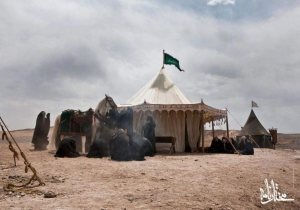Session 4 – The Legacy of Karbala: Social and Political Reverberances after Ashura in Pre-Modern Islamic History
Lecturer: Mohammad Sagha, Humanities Teaching Fellow, University of Chicago and incoming Lecturer in Modern Middle East History, Harvard University (affiliation at the date recorded)
Duration: 2 hours
Date Recorded: July 2022
Subject: This lecture explores the reverberations of the martyrdom of Imam Hussain in Karbala and the multifaceted ways that Ashura has shaped societies, politics, culture, states, and lived communities in pre-modern Islamic history stretching from Iraq and Persia (Iran) to the Levant, North Africa, South Asia, and beyond. The lecture covers the uprising of al-Mukhtar that saw the killing of many of the killers of Imam Hussain and the sponsorship of Ashura commemorations by the Buyid and Fatimid Empires in the ca. 4th Hijjri/10th CE century. The lecture also touches upon more recent contributions of the Oudh dynasty in South Asia in the 19th century CE as well as discussing the diverse public expressions of transnational Shi’a communities in the contemporary world.
Case Study: Television & Ashura
How can movies and television shows depict the historical narrative of Ashura and convey the philosophy of Imam Hussain’s life? What impact does the experience of watching the re-enactment of the events surrounding Ashura have on viewers? How does cinema as a form of media differ in teaching about Ashura in comparison to literature, poetry, or music? How does cinema compare with taz’iyeh theatrical performances of Ashura? The question of the form of media and the transformation of historical research into artistic representations is of high significance when considering the meaning and impact of ritual and presentation of Muharram culture and the philosophy of Ashura.
Recommended Viewing:

Mukhtarnameh television series (40 episodes) about Mukhtar al-Thaqafi, the immediate aftermath of Ashura, and the killing of Imam Hussain’s killers.
Synopsis: Mukhtar al-Thaqafi is a Muslim leader who wants to take revenge to the murder of Hussain ibn Ali against the ones who he considers the enemies of Islam, not just by killing them but to stand against the government that supports them. He wanted to establish a new government that is guided by the word of justice according to the teachings of the Prophet Muhammad.
Director: Davood Mirbagheri
Year: 2010-2011
Country of Origin: Iran

**View the Mukhtarnameh series here in English**
Mukhtarnameh is also accessible in the following languages:

Recommended Reading:
1. Torsten Hylén, “Emerging Patterns of Authority in Early Shiʿism: al-Mukhtār and the Aesthetics of Persuasion,” Shii Studies Review 3 (2019), 5-36.
2. Payam Mohseni and Mohammad Sagha. The Hidden Imam and the End of Time: A Primer on the Mahdi, Islamic Theology, and Global Politics. Cambridge, MA: Harvard University Weatherhead Center for International Affairs’ Project on Shi’ism and Global Affairs. June 2022.